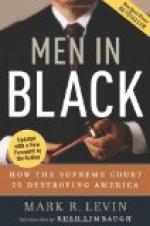“I have such a fine case, so honest and just, that it is impossible that any fair-minded man should decade against me. Therefore, I shall not insist on these minor points of interest or prejudice. You are all open-minded. I will leave it to anyone.” The second attitude was explained by one lawyer who always put his hand to his chin, looked deeply and inquiringly at the jury, and said in an important voice:
“I challenge jurors numbers 6, 8, 9, and 11, or, 4, 5, and 12.” When privately asked on what theory he proceeded in his earnest selection which seemed to imply so wonderful an insight, confessed to no theory at all except the plainly human one that he believed in using up all his challenges simply because it made the other jurors, who remained in the box, feel better and more selected. But the main purpose of selection is to secure a fair and intelligent jury.
Not infrequently one side or the other really wishes to get rid of the best men and willing to take the risk that this will not be apparent. In a real estate case, counsel for the plaintiff not having a strong case succeeded in eliminating every man who had ever owned or who had ever had the slightest experience in houses or property. It was a bold confession that no one who understood the case would decide for him. In railway accident cases, the plaintiff, who asks damages against the company, will often excuse so far as he can, every juror who appears well-to-do or a man of property.
A prominent New York lawyer, when a young man, had defended a case brought against a corporation. The plaintiff and his attorneys were Jews, and the jury-box when first filled was seven-twelfths Hebraic. Counsel for the plaintiff immediately excused the five Gentiles and when the corporation’s lawyer stood up, not a man in the jury-box was of his own race. He accepted them. The trial went on, and it appeared that the plaintiff’s claim was very weak indeed. At last counsel for the defendant had to sum up and he concluded in this way:
“Gentlemen of the Jury: The plaintiff hopes to win this case not on the law, nor on his evidence, nor on any consideration of justice. He hopes to succeed because of the simple fact that he is a Jew, his lawyer is a Jew, and every one of you men are Jews.” With an expression of faith in the sense of justice inherent in the Jewish race and of confidence in the verdict, the attorney for the defendant sat down. The jury decided in his favor.
Such boldness, when successful, is often rewarded, but it is of course inherently dangerous.
Skilful counsel will succeed in ingratiating themselves from the very beginning, but they will endeavor to do so only with the jury as a whole. Nothing is more unfortunate than to bestow attention upon a particular juryman: that is to flirt with a juror. If he has not yet been sworn in with the rest and the opponent sees it, he will certainly get rid of him. If he remained, he would very probably be regarded with suspicion by his chosen associates. Should the counsel think that one man in the box is favorably disposed toward him, he wisely leaves him alone and hoping that the other side will not notice it, devotes himself the more earnestly to the others.




